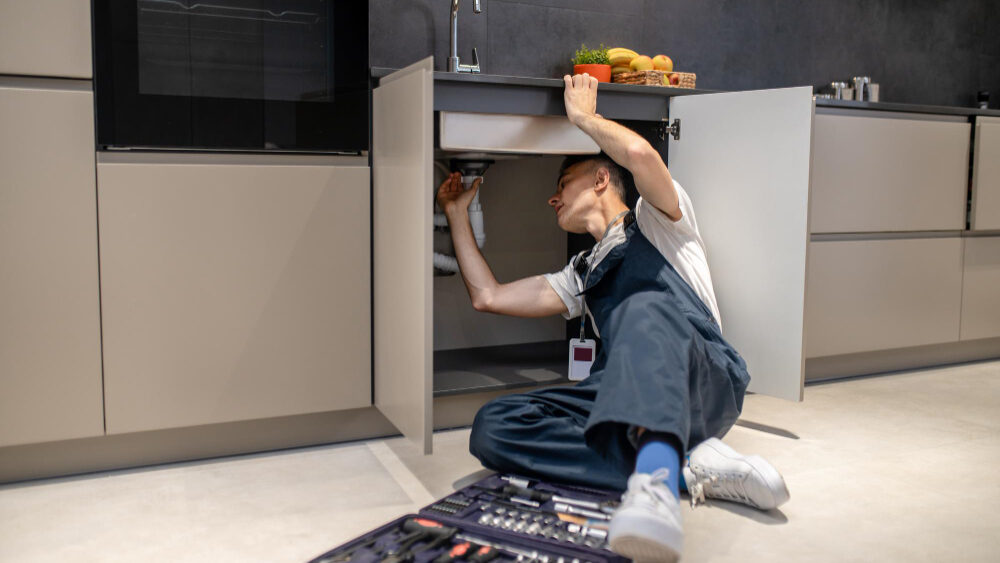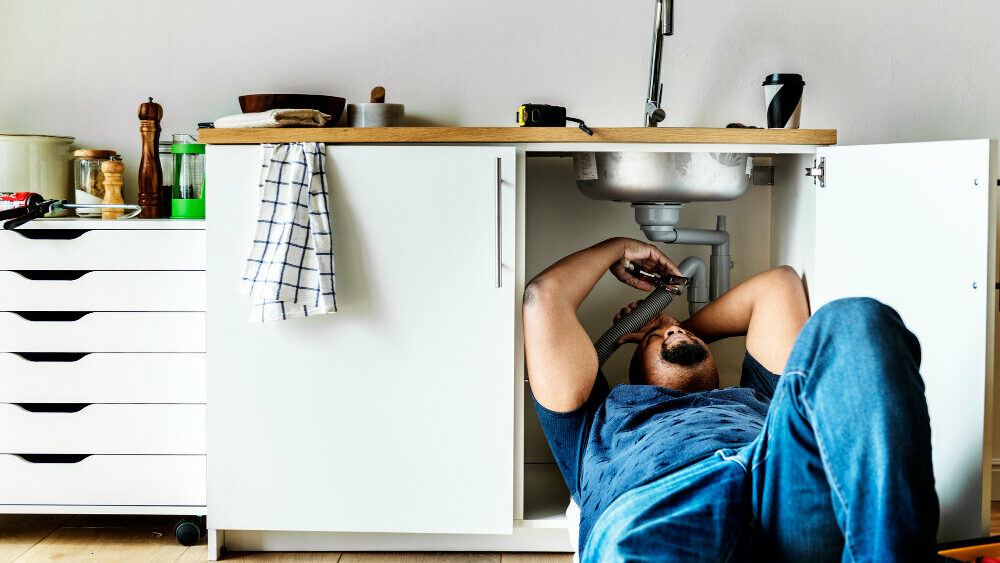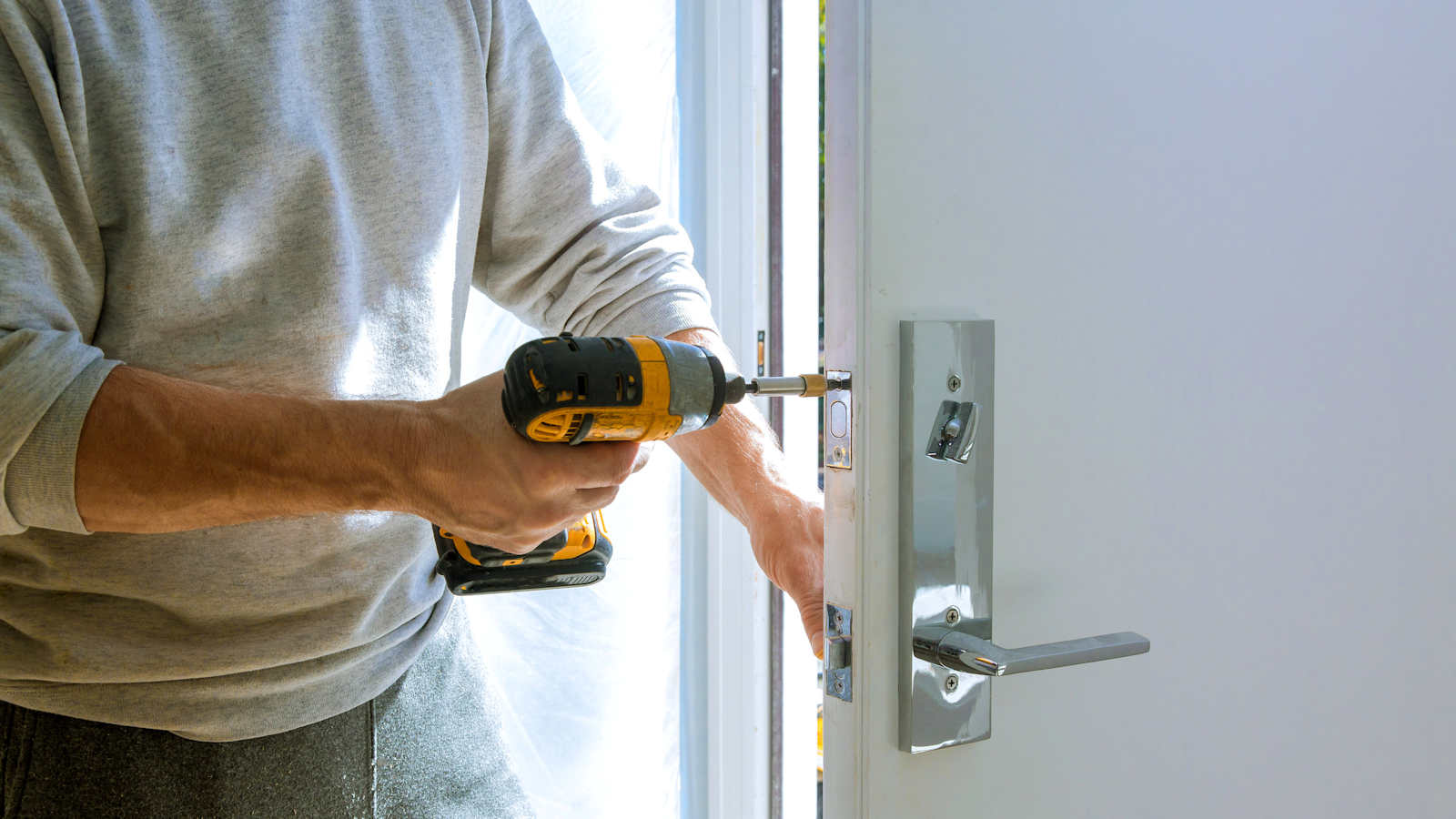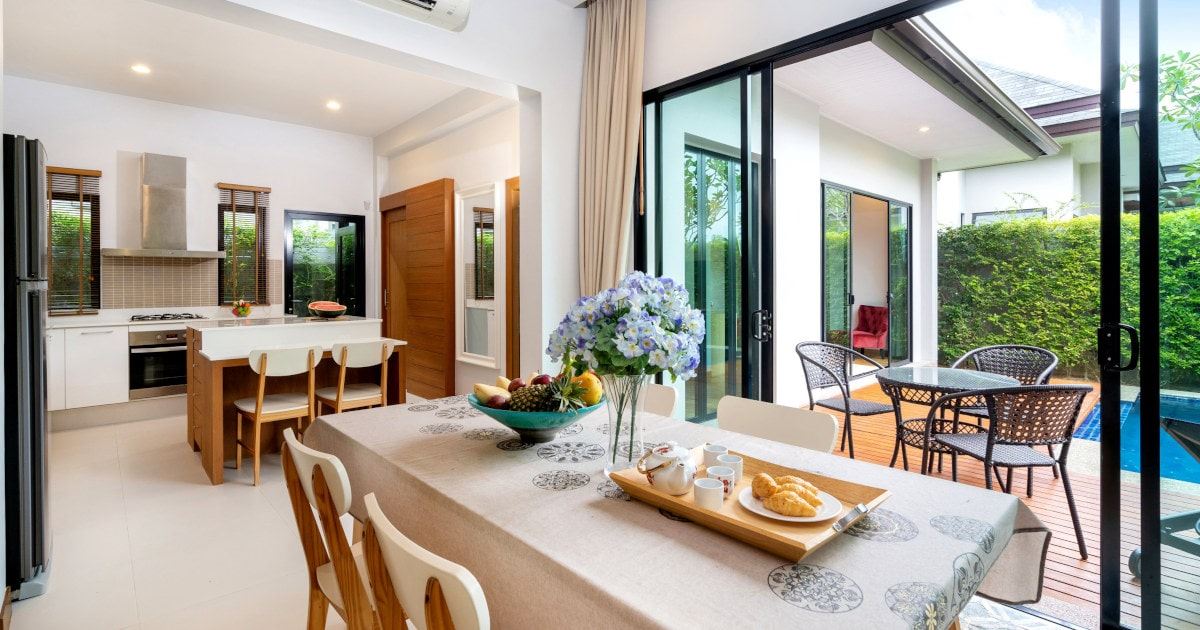Do you wish to avoid the inconvenience and expense of emergency plumbing repairs? Are you tired of constantly shelling out large sums of money for plumbing services? If so, we have great news for you! This article will provide you with 10 essential plumbing maintenance tips that can help you reduce your expenses on costly repairs.
But before we dive into the tips, let’s talk about why plumbing maintenance is so important. Many homeowners underestimate the importance of regular maintenance, but it can actually save you a lot of money in the long run. By regularly maintaining your plumbing system, you can prevent small issues from turning into major problems that require expensive repairs.
Without further ado, let us begin. From checking for leaks to cleaning your drains, we will cover everything you need to know to keep your plumbing system in top shape. By following these simple tips, you can save money, avoid emergency repairs, and keep your plumbing system running smoothly.
These tips are easy to follow and can help you save hundreds, if not thousands, of dollars on plumbing repairs. Let’s get started!
Tip #1: Don’t Ignore a Leak
Now, we know what you’re thinking. “A little leak never hurts anybody, right?” Wrong! Common leaks, such as dripping faucets or running toilets, may seem harmless, but they can waste a surprising amount of water. According to the Environmental Protection Agency, leaks can waste up to 10,000 gallons of water each year in the average household! That’s a lot of wasted water and money going down the drain.
But it’s not just about the water waste. Ignoring a leak can lead to more serious plumbing issues down the line, resulting in costly repairs. That’s why it’s important to address leaks promptly. Don’t wait until it’s too late and you’re dealing with a burst pipe or water damage. Take care of those little leaks before they become big problems.
Tip #2: Request Estimates on Plumbing Repairs
Oh dear, plumbing repairs can really put a dent in your bank account! That’s right, folks, those leaky pipes and clogged drains can add up to some serious cash. Don’t believe me? Let me break it down for you.
First of all, plumbing repairs are not a one-size-fits-all situation. There are a variety of issues that can arise, from a simple leaky faucet to a full-blown sewer line replacement. And let’s not forget the cost of labor – plumbers don’t come cheap, my friend.
So, what can you do to avoid breaking the bank on plumbing repairs? Request estimates from professionals! That’s right, don’t be afraid to ask for a quote before proceeding with any repairs. Not only will this give you an idea of what you’re in for financially, but it will also allow you to compare prices and find the best deal.
I know what you’re thinking: “But getting estimates takes time and effort!” Trust me, it’s worth it. The last thing you want is to be hit with a huge bill for unexpected repairs that you could have prepared for. Plus, by taking the time to request estimates, you may even be able to negotiate a better price with the plumber.
Tip #3: Address Plumbing Problems Promptly
In the world of plumbing, addressing problems promptly is the key to avoiding additional damage and expenses. With that in mind, let’s explore some tips on how to handle plumbing issues quickly and efficiently.
First and foremost, it’s important to know what signs to look out for when it comes to potential plumbing problems. A leaky faucet or toilet, low water pressure, slow draining sinks or showers, and water stains on ceilings or walls are all red flags that shouldn’t be ignored.
Once you’ve identified a potential plumbing problem, it’s time to take action. Don’t put it off or try to fix it yourself unless you’re confident in your plumbing skills. Instead, call a professional plumber as soon as possible. They have the expertise and tools necessary to quickly diagnose and repair the issue, which can save you time and money in the long run.
Remember, the longer you wait to address a plumbing problem, the more damage it can cause. Water damage, mold growth, and structural issues are just a few of the potential consequences of procrastination. So don’t wait until it’s too late to call in the experts. Address plumbing problems promptly and save yourself the headache and expense of additional repairs and damage
Tip #4: Invest in Regular Plumbing Maintenance
If you’re a homeowner who wants to avoid unexpected expenses and save money, here’s an important tip. Tip #4 is all about prioritizing regular plumbing maintenance. While it may not be the most exciting topic, it can save you a lot of money and headaches in the future.
What exactly does plumbing maintenance involve? It means taking care of your pipes and fixtures before they become problematic. This includes conducting regular inspections, cleaning out drains and pipes, checking for leaks, and making necessary repairs. By doing this regularly, you can catch small issues before they become costly problems.
You might be thinking that you don’t have time for all of this, but trust me, it’s worth it. Regular maintenance not only prevents expensive repairs, but it also extends the life of your plumbing system. Additionally, it’s an eco-friendly approach that saves money in the long run.
As homeowners, let’s make a commitment to invest in regular plumbing maintenance. It will save us money and give us peace of mind knowing that our plumbing is in good condition. And who knows, you might even develop a newfound appreciation for plumbing along the way!
Tip #5: Prevent Clogs
Clogs are a common issue that can arise in our homes, but with a few simple tips and tricks, we can avoid them altogether!
First off, let’s talk about why clogs can be such a headache. Did you know that clogs can lead to expensive plumbing repairs? It’s true! When a clog forms in your pipes, it can cause water to back up and eventually lead to burst pipes or sewage backups. Not only is this gross, but it can also cost you a pretty penny to fix.
So, how can we prevent clogs from happening in the first place? One easy tip is to avoid flushing foreign objects down the toilet. This includes things like wet wipes, feminine hygiene products, and even certain types of toilet paper. Instead, opt for toilet paper that’s labeled “septic-safe” to keep your plumbing running smoothly.
Another helpful tip is to install drain screens in your sinks and showers. These screens catch any hair or debris before it has a chance to go down the drain and cause a clog. Plus, they’re super easy to clean!
Lastly, be mindful of what you’re putting down your kitchen sink. Grease, oil, and food scraps can all contribute to clogs over time. To prevent this, try to scrape excess food into the trash can before washing dishes, and consider pouring grease and oil into a container to throw away instead of pouring it down the drain.

Tip #6: DIY Repairs
If you’re faced with minor plumbing problems, don’t panic! There are benefits to tackling these repairs yourself, including saving money and learning a new skill. Here are some tips to help you conduct DIY repairs safely and effectively.
First, gather the necessary tools and materials. You’ll need a plunger, an adjustable wrench, Teflon tape, and possibly a pipe cutter or saw. Research your specific issue and ensure you have the correct replacement parts on hand.
Next, turn off the water supply and drain any remaining water from the affected area. This will prevent further damage and make it easier to work.
When making repairs, take your time and be gentle with the pipes. Use a light touch when tightening connections and avoid over-tightening. Remember to test your work by turning the water supply back on and checking for leaks.
By conducting DIY repairs, you can save money and gain confidence in your abilities. With the right tools and techniques, minor plumbing problems can be solved in no time.
Tip #7: Go for Low Flow Options
Reducing water flow is an easy and effective way to save money and help the environment. By following a few simple tips, you can decrease your water consumption and make a significant impact.
Firstly, consider adjusting your shower head pressure. By using a low flow showerhead, you can reduce water usage by up to 50%. You can also install a faucet aerator to decrease the flow of water from your taps. Additionally, try to limit the amount of time you spend in the shower, as even a few minutes can add up to a significant amount of water usage.
Remember, reducing water flow doesn’t have to be a sacrifice. In fact, it can be a fun challenge to find new ways to conserve water. Get creative and challenge yourself to come up with new ways to save. For example, try turning off the water while brushing your teeth or washing your face, or collect rainwater to use for gardening. By adopting these habits, you’ll not only save money on your water bill but also help to conserve our precious natural resources. So, let’s make a conscious effort to go for low flow options and make a positive impact on the world around us!
Tip #8: Schedule Plumbing Maintenance
Are you tired of dealing with unexpected plumbing issues and costly repairs? The solution is simple: schedule regular plumbing maintenance! Not only will it save you money in the long run, but it will also give you peace of mind knowing that your plumbing system is in good working order. Here are some tips to help you schedule plumbing maintenance:
- Use a calendar app to set reminders for routine maintenance tasks such as drain cleaning, leak detection, and water heater inspections.
- Schedule an annual plumbing check-up with a licensed plumber to assess the overall health of your plumbing system and catch any potential issues before they become major problems.
- Consider signing up for a maintenance plan with a plumbing company to receive regular inspections and discounts on repairs.
Remember, regular plumbing maintenance is essential to keeping your home’s plumbing system functioning properly. Don’t wait for a problem to arise—schedule your next maintenance appointment today!
Tip #9: Fix Leaking Faucets and Shower Heads
Leaking faucets and showerheads might seem like a minor inconvenience, but did you know they can actually lead to significant water waste and expense? A single dripping faucet can waste up to 3,000 gallons of water per year. That’s enough water to fill a small swimming pool! And if you’re on a metered water supply, that leaky faucet is going to cost you big bucks.
But fear not! Fixing a leaky faucet or showerhead is actually a relatively simple task that can be done by anyone with a few basic tools and some know-how. Here are some tips to get you started:
- Turn off the water supply to the affected fixture.
- Remove the faucet handle or showerhead.
- Replace the damaged parts or seals.
- Reassemble the faucet handle or showerhead.
- Turn the water supply back on and test for leaks.
By taking a little time to fix those leaks, you’ll not only save water and money, but you’ll also feel like a DIY superhero!
Tip #10: Only Hire Qualified Professionals
When it comes to plumbing problems, it’s crucial to find the right person for the job to avoid frustration and costly repairs. Follow these tips to ensure you hire qualified professionals for your plumbing needs.
Firstly, verify their credentials and references. Make sure the plumber you consider has a license and relevant certifications. Checking references can give you an indication of their work quality and customers’ satisfaction levels.
Don’t hesitate to ask questions! A qualified plumber will be happy to answer your inquiries about their experience and qualifications. It’s essential to feel confident in their abilities before making a hiring decision.
Also, consider online reviews and ratings from sites like NearMe to gain insight into past customers’ experiences with the plumber.
Remember, while hiring a qualified professional may come with a higher initial cost, it can save you money and time in the long run. Don’t skimp on quality when it comes to your plumbing needs!

Summary
Plumbing issues can be frustrating, expensive, and disruptive. However, there are easy ways to avoid costly repairs by following simple maintenance tips. Remember, don’t ignore leaks and request estimates from professionals. It’s also essential to address plumbing problems promptly and invest in regular plumbing maintenance to keep your plumbing system running smoothly. By following these tips, you can save money, avoid emergency repairs, and keep your plumbing system in top shape. So, let’s get started and make a pact to invest in regular plumbing maintenance to prevent costly repairs and be eco-friendly. Together, we can keep our plumbing systems in top shape and save money in the long run.





